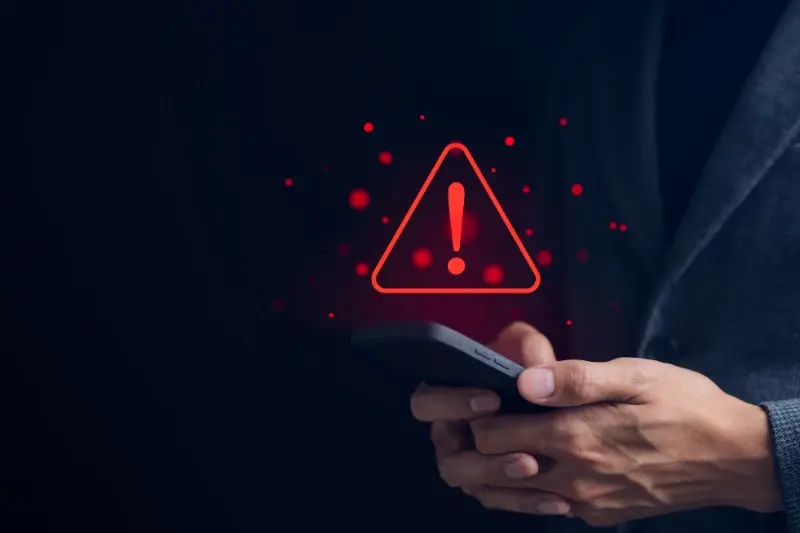Event Management App Features That Actually Make Organisers' Lives Easier
Ever find yourself drowning in spreadsheets, sticky notes, and endless WhatsApp groups whilst trying to organise an event? I've been working with event organisers for years now—from small wedding planners to massive corporate conference teams—and the stories I hear are always the same. People spending more time managing their tools than actually planning their events.
The thing is, most event management apps are built by people who've never actually organised anything bigger than their own birthday party. They're packed with features that look impressive in demos but fall apart when you're dealing with real-world chaos. Last-minute venue changes, dietary requirements that come in at midnight, or that one supplier who only responds to carrier pigeon.
The best event management app isn't the one with the most features—it's the one that makes your existing workflow smoother, not more complicated.
What organisers really need are features that tackle the daily frustrations that eat away at productivity and efficiency. Not another notification system that pings every five minutes, but tools that genuinely make your life easier. The kind of organiser features that let you focus on creating brilliant experiences for both organisers and attendees rather than wrestling with technology that's supposed to help you.
Real-Time Event Updates That Keep Everyone in the Loop
Nothing kills an event faster than confused attendees wandering around asking "what's happening next?" I've worked on plenty of event management apps over the years, and the ones that succeed all have one thing in common—they keep everyone informed in real-time.
Real-time updates aren't just about pushing notifications to people's phones (though that's part of it). They're about creating a central hub where organisers can make changes and instantly share them with everyone who needs to know. Schedule running late? Update it once and everyone sees it. Venue changed last minute? Push it out immediately.
What Makes Real-Time Updates Actually Work
The best event apps I've seen handle updates through multiple channels, not just one. They use push notifications for urgent changes, in-app banners for general updates, and email summaries for people who aren't glued to their phones.
- Instant push notifications for time-sensitive changes
- In-app update feeds that show all recent changes
- Automatic email summaries for major updates
- SMS backup for critical information
- Live chat features for immediate questions
The key is giving organisers control over which updates go where. Not every small change needs a push notification—that's how you get people switching off their alerts entirely. Smart event apps let organisers categorise updates by urgency and automatically choose the right delivery method.
Guest Registration Systems That Actually Work
Nothing kills organiser productivity quite like spending hours manually processing guest registrations. I've worked with event companies who were drowning in spreadsheets, trying to track who's coming, who's paid, and who needs dietary accommodations. It's absolute chaos.
The best event management apps include registration systems that handle the heavy lifting automatically. Guests can register themselves through custom forms, pay deposits or full fees, and select their preferences—all without you lifting a finger. The system should sync everything in real-time so you always know exactly where you stand.
Features That Make Registration Painless
- Automated confirmation emails with event details
- Payment processing with multiple options
- Custom form fields for dietary requirements or accessibility needs
- QR code generation for quick check-ins
- Waitlist management when events reach capacity
- Bulk communication tools for registered attendees
The real magic happens when registration data flows directly into your other planning tools. Budget tracking updates automatically when payments come in, catering numbers adjust based on dietary preferences, and your task list updates based on actual attendance figures.
Set up registration reminders to send automatically a week before your event—you'll be amazed how many last-minute sign-ups this generates without any extra work from you.
Budget Tracking Tools That Stop Financial Headaches
Money management can make or break an event—I've seen brilliant conferences fail because organisers lost track of spending halfway through planning. Event budgets are tricky beasts; they start simple but quickly become complicated webs of deposits, final payments, last-minute additions, and unexpected costs that seem to appear from nowhere.
The best event management apps include real-time budget tracking that connects directly to your planning decisions. When you book a venue through the app, it automatically updates your budget. Add twenty more guests? The system calculates the extra catering costs instantly. This isn't just convenient—it prevents those horrible surprises that used to keep event organisers awake worrying about overspend.
Expense Categories That Make Sense
Smart budget tools organise expenses into clear categories like venue, catering, marketing, and staff. You can set spending limits for each category and get alerts when you're approaching them. Some apps even suggest cost-saving alternatives when you're running over budget.
Multi-Currency Support for Global Events
If you're organising international events, look for apps that handle multiple currencies automatically. They convert everything back to your base currency and account for exchange rate fluctuations. This saves hours of manual calculations and reduces the risk of currency-related budget mistakes that can be surprisingly expensive.
Task Management Features That Prevent Things Falling Through Cracks
After years of working with event organisers, I can tell you that most of them are juggling about fifty different tasks at any given moment. There's the vendor who needs their final payment, the speaker who hasn't confirmed their tech requirements, and the caterer who's waiting for headcount numbers. Without proper task management, these small things snowball into massive problems.
The best event management apps include task assignment features that boost workplace productivity by letting you delegate work to your team members—and more importantly, track whether they've actually done it. You can set deadlines, add priority levels, and get notifications when deadlines are approaching. Some apps even let you create task templates for recurring events, which is a real time-saver when you're running similar events throughout the year.
Automated Reminders and Dependency Tracking
Smart task management goes beyond simple to-do lists. The most effective apps understand that some tasks depend on others being completed first. You can't send out welcome packs until registration closes, for example.
The difference between a smooth event and a chaotic one often comes down to whether the organiser stayed on top of the small details that matter
Modern apps also send automated reminders to team members, reducing the need for awkward follow-up conversations. This kind of systematic approach to task management genuinely transforms how efficiently event teams work together.
Communication Tools That Cut Down on Endless Email Chains
Email chains for event planning can become absolutely mental—I've seen threads with 47 replies where nobody knows what's actually been decided! Event management apps solve this by bringing all communication into one organised space where everyone can see the latest updates without scrolling through weeks of back-and-forth messages.
The best communication features include in-app messaging that's tied directly to specific tasks or event elements. When someone asks about catering, the conversation sits right next to the catering details; when there's a question about venue setup, it's attached to those plans. No more hunting through your inbox trying to remember which email had the important information.
Smart Communication Features That Work
- Team messaging boards organised by event categories
- Direct messaging between team members and vendors
- Automated notifications when decisions are made or tasks completed
- File sharing within conversations to keep documents in context
- Priority messaging for urgent issues that need immediate attention
What I love about app-based communication is the accountability it creates—everyone can see who's responsible for what and when they last responded. It eliminates that awkward situation where someone claims they never got the email when everything's clearly documented in the app.
Analytics Dashboard That Shows What Really Matters
After years of building apps for event organisers, I've learned that most people get completely overwhelmed by analytics dashboards packed with meaningless numbers. You know the type—endless charts showing page views, click rates, and other metrics that sound impressive but don't actually help you run better events.
The best event management apps focus their analytics on what organisers actually need to know. Registration numbers broken down by ticket type, attendance rates for different sessions, and real-time capacity tracking for venues. These are the numbers that help you make decisions during the event—not vanity metrics that look good in reports.
Key Metrics That Drive Better Events
Smart analytics dashboards prioritise actionable data over pretty graphs. Registration conversion rates tell you if your marketing is working; session popularity helps you plan future events; attendee flow patterns show you where bottlenecks happen.
- Registration completion rates by source
- Real-time attendance tracking per session
- Revenue breakdown by ticket category
- Peak venue capacity times
- Post-event satisfaction scores
Look for apps that let you export key metrics in simple formats—sometimes you need to share quick numbers with stakeholders without logging into multiple systems.
The most useful dashboards show trends over time rather than just snapshots. This helps organisers spot patterns and improve their efficiency for future events.
Conclusion
After working with event organisers for years, I can tell you that the difference between a stressful event and a smooth one often comes down to having the right tools. The features we've covered—real-time updates, proper registration systems, budget tracking, task management, communication tools, and meaningful analytics—aren't just nice-to-haves anymore. They're what separate the professionals who sleep well at night from those frantically putting out fires at 2am.
What strikes me most is how these features work together. Your budget tracker means nothing if your team can't communicate about overspends; your task management falls apart without real-time updates when things change. The best event management apps understand this connection and build features that actually talk to each other.
I've watched too many organisers try to juggle spreadsheets, email chains, and sticky notes when they could be focusing on what really matters—creating brilliant events that people remember for all the right reasons. The technology exists to make event management genuinely easier, not just digitally complicated. Choose tools that solve real problems, not ones that create new ones. Your sanity (and your events) will thank you for it.
Share this
Subscribe To Our Blog
You May Also Like
These Related Stories

The Complete Guide to Event Management App Development: From Planning to Party

Why Apps Die: The Maintenance Mistakes That Kill Mobile Apps





